France Reviews Terror Threat After Suspected Jihadist Attack
The French government held an emergency meeting Saturday after a Tunisian man stabbed a police employee to death near Paris in a suspected Islamist attack as investigators questioned three people linked to the assailant.
The murder on Friday at a police station in Rambouillet, a commuter town about 60 kilometres (40 miles) from Paris, revived the trauma of a spate of deadly Islamist attacks in recent years.
The victim was a 49-year-old woman named as Stephanie M., a police administrative assistant and mother of two teenage girls. She was stabbed twice in the throat at the entrance of the station.
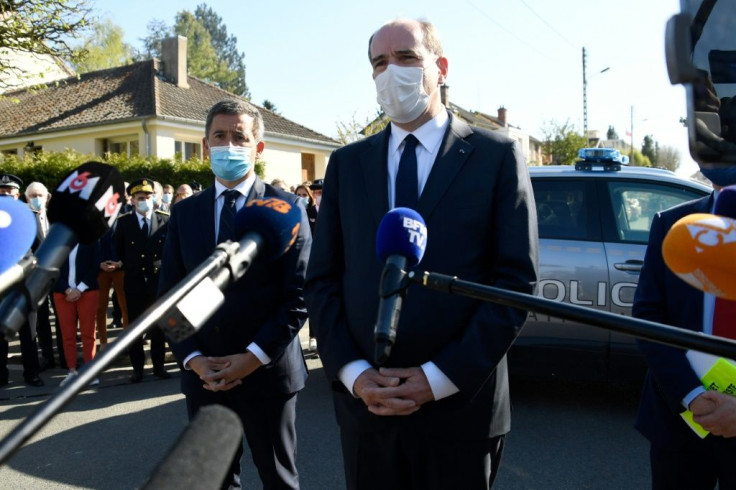
Her alleged 36-year-old attacker Jamel Gorchene was shot and killed by an officer at the scene. He was unknown to the police and intelligence services.
President Emmanuel Macron, who was out of the country on a visit to Chad at the time, tweeted that France would never give in to "Islamist terrorism".
On Saturday, he visited the victim's husband at his bakery after meeting with the police divisional commander in Rambouillet, the presidency said.
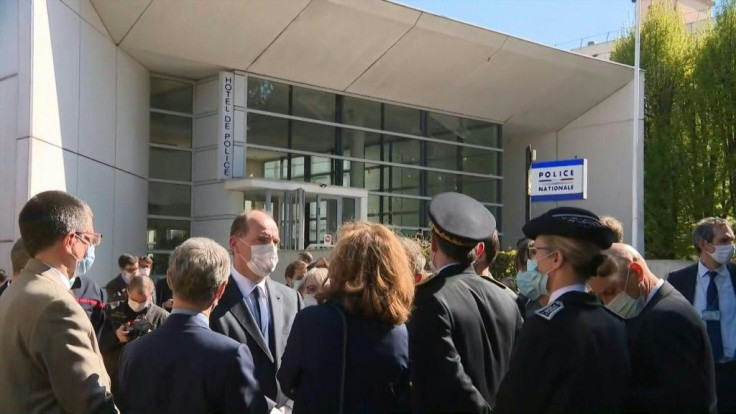
The family was "very upset and very dignified", it said.
Prime Minister Jean Castex cut short a visit to France's Occitanie region to hold an emergency meeting with the interior, justice and armed forces ministers which lasted for two hours.
The latest violence targeting police is likely to focus attention further on the danger of Islamic extremism in France and wider concerns about security a year ahead of a presidential election.
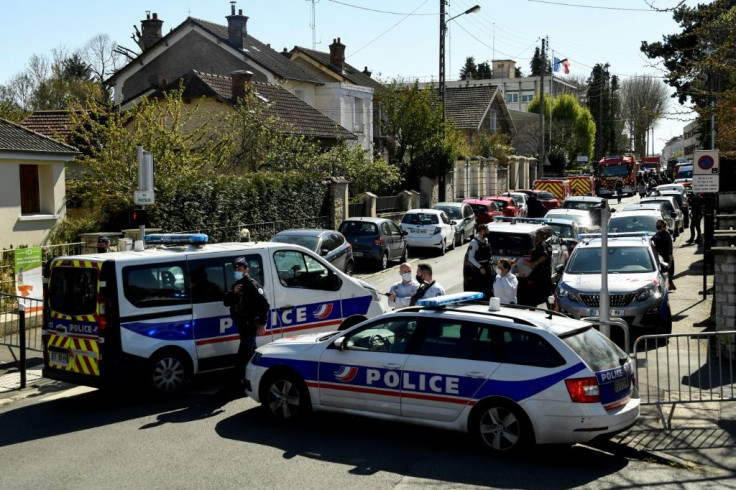
National anti-terrorism prosecutors have opened a terror investigation.
One source close to the inquiry told AFP the knifeman had shouted "Allahu Akbar" (God is Greatest) during the attack.
Chief anti-terror prosecutor Jean-Francois Ricard confirmed "comments made by the assailant" indicated a terror motive and said the attack might have been premeditated.
Counter-intelligence chief Laurent Nunez told broadcaster BFMTV that Gorchene had shown no signs of radicalisation.
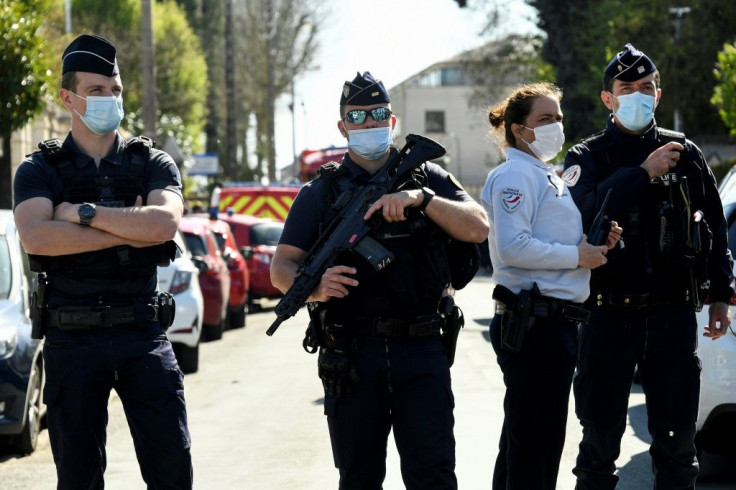
He was, he said, one of those individuals "who are very isolated, have no relations with other individuals that make the detectable".
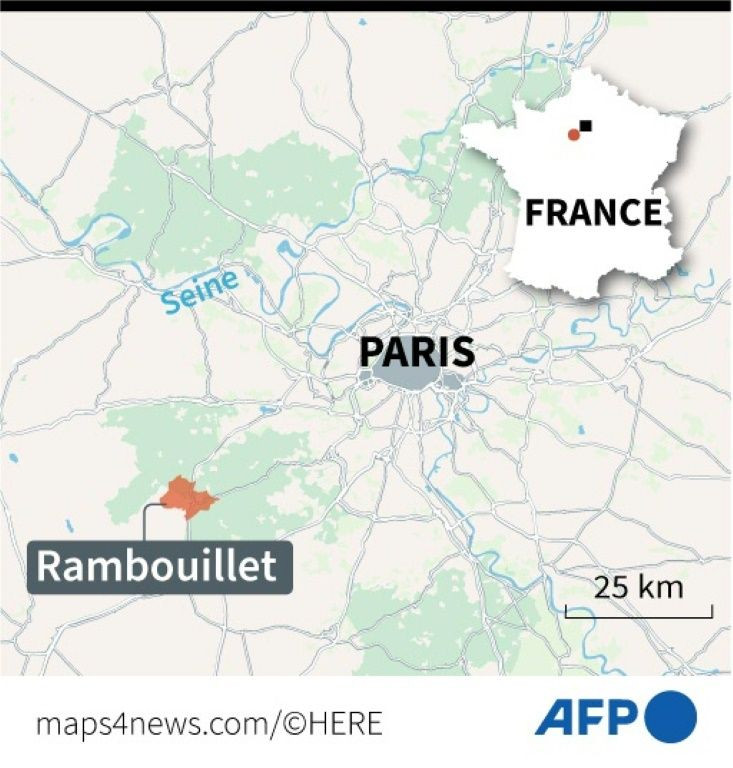
The suspect's father and two other people said to have hosted him were taken into custody on Friday, and questioning continued on Saturday as police delve into his background, contacts and possible motives.
A fourth person was also taken into custody and the homes of all four people searched.
A source close to the investigation said Gorchene's phone contained religious chants often used to spread jihadist propaganda.
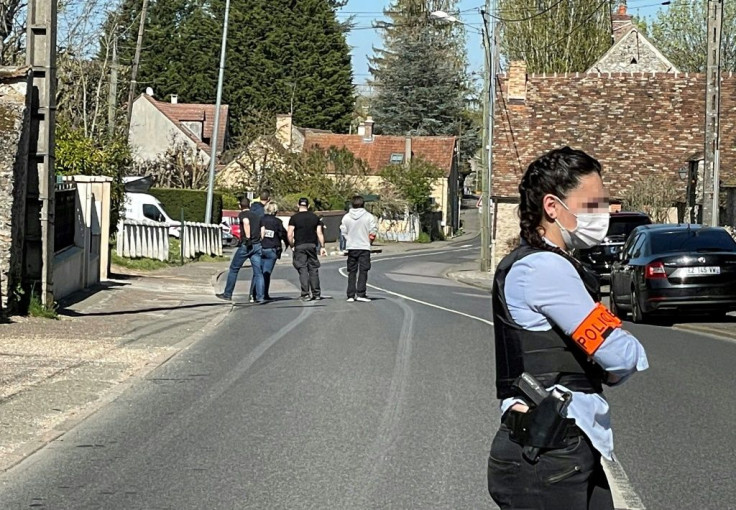
The assailant had arrived in France illegally in 2009 but had since obtained residency papers, a police source said. He had just moved to Rambouillet and was working as a delivery driver.
Relatives in Tunisia described him as depressive and not devout, and they expressed shock and disbelief at the murder.
Gorchene was from M'saken, the same hometown as Tunisian Mohamed Lahouaiej-Bouhlel, who carried out a deadly attack in France in July 2016.
Far-right leader Marine Le Pen immediately questioned why the attacker had been able to settle in the country, and hit back at recent criticism about police brutality in France.
"We need to get back to reason: supporting our police, expelling illegal immigrants and eradicating Islamism," she wrote on Twitter.
Polls show Le Pen running close to Macron in next year's election, though experts warn that surveys conducted so far ahead and during a pandemic should be interpreted with caution.
About 30 police officers wearing balaclavas raided the suspect's home in Rambouillet on Friday, AFP reporters said.
At the same time police in the Paris region searched the home of the person who had sheltered him when he first arrived in France, sources close to the inquiry said.
Interior Minister Gerald Darmanin, who also visited officers in Rambouillet, said security would be stepped up at stations nationwide.
France has been repeatedly targeted by Islamist attackers since 2015, with a series of incidents in the last year keeping terrorism and security as a leading concern.
Macron's government has introduced legislation to tackle religious extremism, which would make it easier for the government to close places of worship and track foreign funding of mosques.
The bill has been condemned by critics who see it as stigmatising Muslims.
In October, a young Chechen refugee beheaded teacher Samuel Paty who had showed caricatures of the Prophet Mohammed to his pupils, a crime that profoundly shocked the country.
In the most serious recent attack against French police, three officers and one police employee in Paris were stabbed to death in October 2019 by an IT specialist colleague who was himself then shot dead.
He was found to have shown an interest in radical Islam.
These attacks came after the massacres carried out by Islamist extremists from 2015 that began in January with the killing of staff in the offices of satirical magazine Charlie Hebdo, which had printed Prophet Mohammed caricatures.
The following year Lahouaiej-Bouhlel -- the man from Gorchene's hometown -- rammed a truck into a Bastille Day crowd in Nice, killing 86 people.
© Copyright AFP 2024. All rights reserved.





















